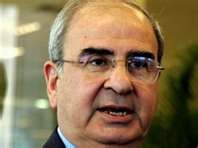
Tamer al-Samadi, Al-Hayat
The Jordanian Speaker of parliament's upper house (Senate), Taher al-Masri, said in an interview with Al-Hayat that Jordan favors a gradual end to Syrian President Bashar al-Assad's regime. He added that his country is preparing itself for several alternatives if the calls for a peaceful solution to end the cycle of violence for its northern neighbor fail. Furthermore, he said that the Syrian-Jordanian border is expected to witness major developments in the coming days.
Masri — a Jordanian of Palestinian origin who served as foreign cabinet minister in previous cabinets, as prime minister in 1991 and parliament speaker in 1993 — said that King Abdullah II of Jordan “is committed to the need to find a peaceful solution to the Syrian crisis, and prefers a compromise that ensures the gradual end of the regime, for fear of the collapse of the state, falling into chaos and the risk of partition.” He added that the Jordanian choice “collides with a thick wall, particularly since influential parties within the opposition reject it, as does the regime.”
Masri refused to respond to the accusations Assad had leveled at Jordan. Assad recently said that Amman “is facilitating the passage of thousands of fighters into our country.” Masri also denied that Amman opened its airspace to Israeli drones to explore strategic locations in Syria to pave the way for carrying out strikes. He said that in the coming days “we are expected to [witness] major developments on the border with Syria, and we need to be well-prepared, and to prepare for the alternatives if a peaceful solution is exhausted.” He also expressed his fear that the Assad regime might intensify its attacks on southern Syria near the Jordanian border, adding that “any unusual military action would have dangerous consequences on the kingdom and would result in a greater number of refugees, which could further complicate the matter.”
Masri considered that as the conflict in Syria continues, and as ethnic and religious divisions emerge in the cities, they will move to the neighboring countries. He stressed that these aspects “would threaten Jordan’s higher interest, and cause the kingdom to be at risk of being engulfed by the Syrian fire.”
Asked about the presence of foreign troops in the Jordanian territory, and the involvement of his country in training Syrian opposition forces, he replied, “I know that there are Western experts who often visit the kingdom to discuss how to contain the Syrian chemical weapons threat; this is what I know.”
Jordan had acknowledged days ago that it would host American troops; however, it emphasized its rejection of any military intervention in Syria and called for a comprehensive political solution.
On the possibility of creating a buffer zone in southern Syria near the Jordanian border, Masri said, “I have raised this idea within Jordanian decision-making circles, and it turned out not to be practical under such circumstances ... Creating a buffer zone requires entering the Syrian territory, aerial and ground cleaning, protection of the target area and moving the Jordanian refugee camps, which is unlikely to take place for reasons that would take too long to explain.”
The Jordanian government announced earlier that it was considering using the city of Daraa, which is the largest city in southern Syria, to test the possibility of creating a buffer zone.
Masri talked about King Abdullah’s recent US visit, and pointed out that Washington is leaning toward the Geneva Accord, which includes a framework for a peaceful solution to the Syrian crisis.
The accord stipulates the formation of a transitional government, which will be chosen with a consent from the opposition and the regime, with executive powers. During his visit to the United States last week, the Jordanian king urged the Obama administration to intensify the efforts designed to find a political settlement to the Syrian conflict, and said that Jordan’s northern neighbor seems to be increasingly heading toward chaos or disassembly, which could threaten the region in future decades.
On local Jordanian affairs, Masri said, “There are forces of obscurantism (which he did not identify) that seek their interests, separately from the Jordanian people’s concerns, and seek to kill.” He added, “These are chaotic forces that are present on the ground, who promote regionalism, disunity — in a country where nearly half the population is of Palestinian origin — clashes, chaos and narrow-minded concepts.”
Regarding talks on “the risks” of converting Jordan into an alternative homeland for Palestinians, he said, “The idea of an alternative homeland is completely unfounded in reality. Jordan is Jordan and Palestine is Palestine.” He continued, “It seems that some [he did not identify] have suspicious agendas. They are trying to drive a wedge between the Jordanian and Palestinian groups.”
On the recent news reporting the preparation for [the establishment of] a future confederation between “the new state” of Palestine and the kingdom, Masri replied, “Our position in Jordan is clear, and everyone knows it. We will not talk about this option before an independent state of Palestine is declared and it joins the UN.” He added, “I believe that any federalist agreements will not take place, if the Palestinian issue remains undefined.”
Regarding the relationship between the Jordanian state and the Muslim Brotherhood — the largest opposition group in the country — Masri felt “the situation to still be the same, not having changed in a long time. The stances are not harmonious, there is neither contact nor progress in the relationship,” and he chose not to dwell on the details. Yet, he pointed out that the Jordanian movement, which has entered its third year, “produced significant reforms,” and said, “We are waiting for more but in a gradual, peaceful way that preserves the security, integrity and stability of the homeland.”
It should be noted that for nearly two years, Jordan has witnessed peaceful demonstrations organized by Islamists and secular tribal figures inspired by uprisings in neighboring countries. The demonstrators have focused, however, on reforming the government, and on limiting the powers of the king instead of overthrowing him.
Latest News
-
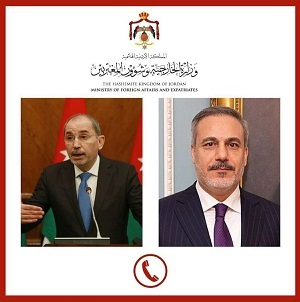 Safadi condemns Iranian attacks, discusses de-escalation efforts with counterparts
Safadi condemns Iranian attacks, discusses de-escalation efforts with counterparts
-
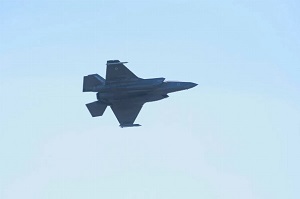 UK's Cyprus military base comes under attack amid Middle East war
UK's Cyprus military base comes under attack amid Middle East war
-
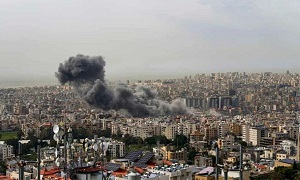 Israel strikes Beirut suburbs in response to Hizbollah attack
Israel strikes Beirut suburbs in response to Hizbollah attack
-
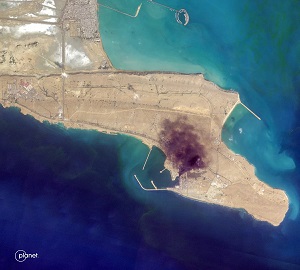 Trump says 48 Iranian 'leaders' killed in US attack - Fox News
Trump says 48 Iranian 'leaders' killed in US attack - Fox News
-
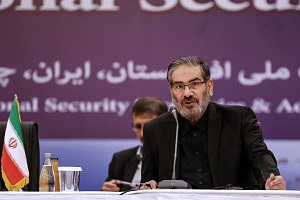 Ali Shamkhani: Iran's navy chief leading Defence Council
Ali Shamkhani: Iran's navy chief leading Defence Council